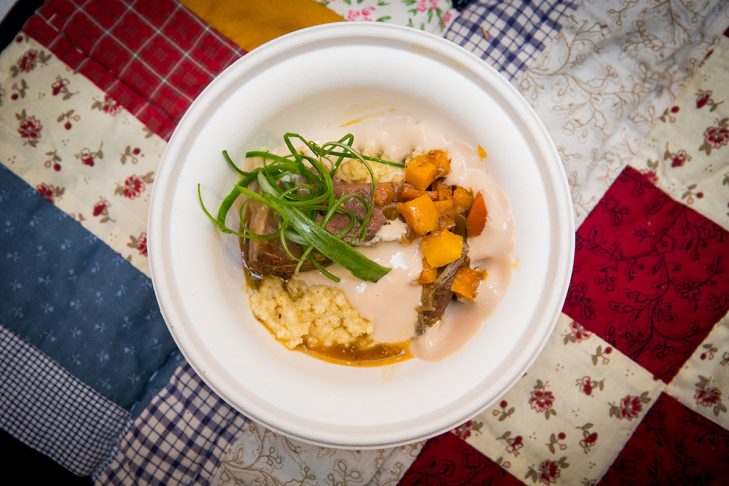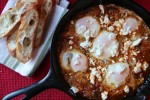To many Americans, and even to many American Jews, the Jewish people are represented by one culture, one history and one cuisine. If asked, most people in the States would define Jewish cuisine as bagels with lox, noodle kugel, whitefish salad and matzah ball soup. The words “Mazel Tov” are pronounced in the Yiddish style and the Jewish experience has been defined by the assimilation into Eastern European culture and the atrocities (and incredible strength and survival) of the Holocaust. All of this, though, belongs to the Ashkenazi Jews, and there is a whole other half to the story of the Jewish people.
Sephardi Jews (although technically defined as Jews of Spanish origin, the term has come to encompass brown Jews everywhere) are from Spain and Northern Africa, from the Middle East and, in some cases, Asia. Some of us are Hispanic in our ancestry, and some of us are Arabs. We speak Turkish, and Arabic, and Ladino. My grandmother never spoke Hebrew until she immigrated to Israel in 1949, and my grandfather never learned. We eat family style dishes that embody the soul and earthiness of Hispanic and African cultures, we have been peasants for as long as we know and we create flavor from nothing, the mark of beautiful peasant food.
Sephardi Jews are characterized and stereotyped as strong and strong-willed, as dumb brutes with fiery blood and an unbreakable will. While the modern American Jew has been satirized as a caricature of Ashkenazi culture, the modern Israeli is often thought of as the Sephardi equivalent; what we lack in tact we make up for in machismo.
-
It had often been said that an Israeli chef is Israeli in style, not process or form or technique. It isn’t what we cook so much as how we cook. This is exponentially true about Sephardi culture: modern Israeli cuisine is a potluck dinner party and the Sephardis are the loudest and have crowded the table. The Moroccans brought tagine, the Iraqis brought the laffa, the Yemenites have gifted malawach and jachnun, the Turkish give us yaprach (stuffed grape leaves) and shawarma, and the Lebanese/Syrians/Egyptians brought falafel and hummus. What makes everyone in the room similar is the willingness to eat with their hands, the confidence in trying everything and the deep love that appears front and center in every dish.
The Sephardi was never the doctor, or the accountant. Our history is not littered with lawyers and bankers. We are farmers and tradesmen, we are dish washers and shop keeps. We have scraped and clawed as second-class citizens in every nation we’ve existed. We have toiled to survive by working tirelessly. On Friday nights and Saturday mornings, though? We have eaten as a family gathered around the table, pushing and pulling to get the runniest egg in the shakshuka.
Check out his modern take on Sephardic cuisine at the eighth annual Beyond Bubbie’s Kitchen on Feb. 26.
Never miss the best stories and events! Get JewishBoston This Week.
This post has been contributed by a third party. The opinions, facts and any media content are presented solely by the author, and JewishBoston assumes no responsibility for them. Want to add your voice to the conversation? Publish your own post here.
MORE










